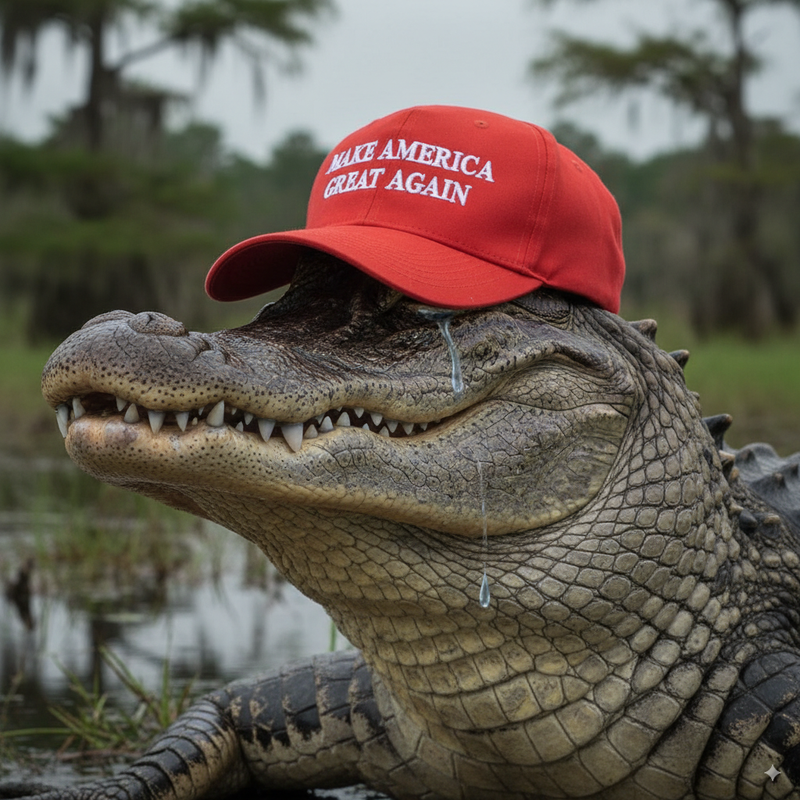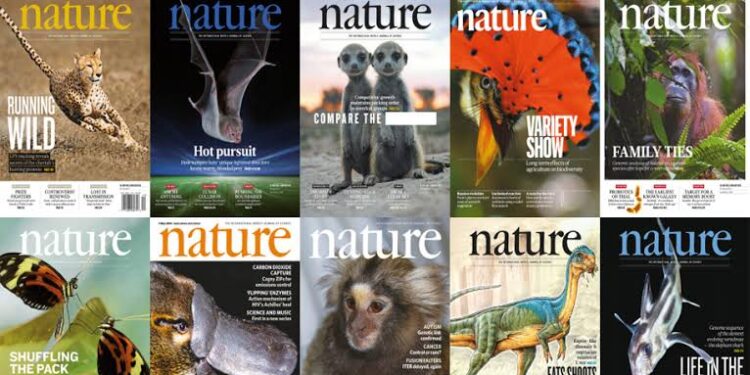美国的医保问题也很大,cost太高,billing混乱不堪,朋友去年做了两次相同的检查,最后价钱差近10倍,其中一家检测机构charge1千多刀最后自付15刀不到,另一家charge 500刀,自付120,同一个医生同样的保险plan
联邦机构取消订阅Nature等杂志
-
jumpingdonut
- 职业作家

- 帖子互动: 74
- 帖子: 621
- 注册时间: 2024年 2月 28日 21:49
#41 Re: 联邦机构取消订阅Nature等杂志
-
chuanjianguo(川建国)
- 著名点评

- 帖子互动: 62
- 帖子: 4760
- 注册时间: 2022年 11月 10日 17:57
#45 Re: 联邦机构取消订阅Nature等杂志
联邦机构订阅什么杂志是一个学术问题,对总统来讲是一件微不足道的小事,总统不应该干预。wh 写了: 2025年 7月 3日 20:00 小事是指5000块钱的咖啡杯,还是取消springer nature期刊订阅?取消期刊订阅主要是摆个姿态吧,看新闻里也说钱不算多,但用意识形态来影响知识界,是粗暴干涉学术自由……
For many federal researchers, the decision to cut ties with Springer Nature is not just about dollars and cents—it’s about access to knowledge. Losing institutional access to premier journals hampers their ability to stay abreast of new discoveries, collaborate across institutions, and publish in high-visibility platforms.
One NIH employee, speaking to Nature on condition of anonymity, described the move as a serious blow to scientific freedom. Without these journals, some researchers worry they are being cut off from the very ecosystem that enables progress in their fields. Others fear that decisions about what science is worth supporting are increasingly being shaped by ideology rather than evidence or professional need.
The mass cancellation of Springer Nature subscriptions appears to reflect more than just financial restraint. It suggests a growing tension between scientific institutions and political leadership—particularly when that leadership casts doubt on the legitimacy of established research outlets.
我又问了AI五角大楼的咖啡杯是不是五千块,AI说不是:
No, a standard coffee mug at the Pentagon does not cost $5,000.
However, there was a 2018 congressional inquiry that revealed the U.S. Air Force was spending $1,300 for each reheatable coffee cup used on KC-10 aircraft and replacing them when the handles broke. Senator Chuck Grassley found the Air Force spent $32,000 replacing just 25 of these cups.
While these reheatable cups were significantly more expensive than typical mugs, they were not priced at $5,000.
For reference, a different source indicates that the Pentagon gift shop, Fort America, sells mugs starting at $10.95.
#46 Re: 联邦机构取消订阅Nature等杂志
From wikipedia:弃婴千枝 写了: 2025年 7月 3日 19:52 说的是springer nature,不是nature,nature一年就200刀,跟时代周刊差不多,你是学生只要100刀一年,连当年我住的楼房的不是搞科研的退休老头都订nature,来了一楼信箱上一堆nature,看来你肯定没订过
但是springer nature不一样了,整个springer的书籍杂志都免费看,你要买书本来200刀现在一律25刀,我买过无数,只要25刀他妈的这谁买不起啊,比中国一样便宜,所以一年要上千万是正常的
另外,财大气粗的党妈把整个nature都包圆了,凡是中国ip都免费看,比美帝厉害多了
"Springer Nature or the Springer Nature Group is a German-British academic publishing company created by the May 2015 merger of Springer Science+Business Media and Holtzbrinck Publishing Group's Nature Publishing Group, Palgrave Macmillan, and Macmillan Education. "
Springer Nature should be the current publisher of Nature.
-
cellcycle1
- 论坛元老

cellcycle1 的博客 - 帖子互动: 1066
- 帖子: 71564
- 注册时间: 2022年 7月 24日 15:59
-
japamer
- 见习作家

japamer 的博客 - 帖子互动: 34
- 帖子: 343
- 注册时间: 2022年 10月 27日 22:33
-
jiujianoufu
- 论坛精英

- 帖子互动: 399
- 帖子: 8569
- 注册时间: 2022年 7月 25日 06:54
-
alexwlt1024
- 自助冻结

- 帖子互动: 530
- 帖子: 3410
- 注册时间: 2023年 6月 13日 14:47
-
VladPutin(清风不识字何故乱翻书)

- 论坛元老

VladPutin 的博客 - 帖子互动: 1833
- 帖子: 15236
- 注册时间: 2022年 7月 24日 11:12
#51 Re: 联邦机构取消订阅Nature等杂志
Nature和PRL完全不是一个类型的期刊。Nature大多是有跨学科兴趣的研究, 比如发现了中等质量黑洞,新的RNA作用机制,PRL只发物理通讯文章,质量参差不齐,全错的结果也不少。
x1


蒙古国有愚豕浮阳外越,便结不通,频下清个痢虚之气。虽屡试开赛露之剂,终无寸效。遂引诣兽医师诊之。医者摩其腹良久,谓主人曰:"咄!此蠢物腹中空若悬磬,纵投万斛通肠开赛之剂,犹决涸泽而求鲋也,岂有济哉?"

-
datoumao(大头猫)

- 论坛元老

2023-24年度十大优秀网友
datoumao 的博客 - 帖子互动: 3443
- 帖子: 18369
- 注册时间: 2022年 10月 22日 01:42
#53 Re: 联邦机构取消订阅Nature等杂志
这种事是不可能的,你朋友没有告诉你真话而已。美国的billing是按procedure code来的,code不同价格自然不同。相同的code,你在Mayo Clinic和在Kaiser的价格没有多少区别。
jumpingdonut 写了: 2025年 7月 4日 06:02 美国的医保问题也很大,cost太高,billing混乱不堪,朋友去年做了两次相同的检查,最后价钱差近10倍,其中一家检测机构charge1千多刀最后自付15刀不到,另一家charge 500刀,自付120,同一个医生同样的保险plan
#54 Re: 联邦机构取消订阅Nature等杂志
很多人不知道这些期刊的内幕,以为“顶级期刊”就牛掰,其实都是灌水。
权力对自由的侵蚀常会以各种暧昧的面目出现,而很少以秘密警察半夜敲门把无辜者拉去枪毙的方式发生;它可能表现为执法机构对权贵的袒护,在弱者受前者欺凌时拒绝提供保护,此时假如弱者有枪,局面就大不一样;权力的滥用也可能以代理人方式进行,当需要使用些见不得人的手段时,常会伪装为平民暴徒。
-
VladPutin(清风不识字何故乱翻书)

- 论坛元老

VladPutin 的博客 - 帖子互动: 1833
- 帖子: 15236
- 注册时间: 2022年 7月 24日 11:12
#57 Re: 联邦机构取消订阅Nature等杂志
文盲灌一个试试
蒙古国有愚豕浮阳外越,便结不通,频下清个痢虚之气。虽屡试开赛露之剂,终无寸效。遂引诣兽医师诊之。医者摩其腹良久,谓主人曰:"咄!此蠢物腹中空若悬磬,纵投万斛通肠开赛之剂,犹决涸泽而求鲋也,岂有济哉?"

-
ReticulumZeta(首席 大妈观察家 大妈观察学博士生导师)
- 论坛精英

- 帖子互动: 469
- 帖子: 7114
- 注册时间: 2023年 1月 25日 22:25
#58 Re: 联邦机构取消订阅Nature等杂志
目测以后nature影响因子大降wh 写了: 2025年 7月 3日 18:44 看到教育群里说NASA、农业部、能源部等联邦机构都停止订阅Springer Nature旗下的所有科研学术期刊;说川普的一大legacy是sow the seeds of mistrust,让人反智、怀疑科学、觉得主流科研都是左派的大阴谋。
https://techstory.in/federal-scientists ... er-nature/
Federal Scientists Lose Access to Prestigious Journals as Agencies Cut Ties with Springer Nature
Funding concerns and political ideology converge in decisions affecting access to world-class scientific literature
by Harikrishnan A
July 3, 2025
Scientists across several major U.S. federal agencies are losing access to Springer Nature’s suite of highly respected journals including Nature, one of the world’s most prestigious scientific publications. The shift, confirmed in a report by Nature’s independent news team, has raised alarm among researchers who rely on these journals to stay informed, conduct groundbreaking research, and publish peer-reviewed findings.
Springer Nature’s extensive portfolio includes not only Nature but also Scientific American and dozens of journals covering disciplines from climate science to genomics. These resources are essential for government scientists working on everything from pandemic preparedness to space exploration. However, a growing list of federal agencies, including NASA, the U.S. Department of Agriculture (USDA), and the Department of Energy (DOE), are pulling the plug on their subscriptions.
Budgetary Cuts and Subscription Cancellations
According to USDA officials, the department decided to cancel all contracts with Springer Nature due to the high cost of subscriptions, arguing that it was not a responsible use of taxpayer dollars. NASA has followed suit, confirming its scientists would also no longer have institutional access. Public federal spending records show that the DOE has likewise ended its financial relationship with the publisher.
These cancellations reflect a broader trend of tightening federal research budgets. Scientific journals can cost institutions tens or even hundreds of thousands of dollars annually—an expense some agencies are now questioning. But the concern over budget alone does not tell the full story.
NIH Access Revoked Amid Mixed Signals
Initially, it appeared that the National Institutes of Health (NIH)—the nation’s largest biomedical research funder—would maintain its access to Springer Nature titles. But shortly after inquiries from Nature‘s news division, a spokesperson from the Department of Health and Human Services (HHS), which oversees the NIH, clarified that all Springer Nature contracts were either terminated or inactive.
This abrupt shift marked a significant development. HHS did not just cite cost as a reason, but suggested that the agency was unwilling to support what it described as underused or non-essential scientific content. This reasoning has raised eyebrows, particularly among researchers who depend on these journals for high-impact work and up-to-date scientific developments.
A Changing Climate at HHS
The move aligns with the broader views of HHS Secretary Robert F. Kennedy Jr., a controversial figure known for his skepticism of mainstream science and medicine. Kennedy has openly criticized leading scientific and medical journals, expressing distrust in their editorial integrity and accusing them of being biased toward pharmaceutical interests.
In recent public comments, Kennedy questioned whether federal scientists should continue publishing in mainstream journals like The Lancet, JAMA, and The New England Journal of Medicine. He has suggested the possibility of developing government-controlled alternatives to these journals. While these ideas have not materialized into formal policy, they reflect a shift in how scientific authority is being evaluated at the federal level.
Scientific Community Voices Concern
For many federal researchers, the decision to cut ties with Springer Nature is not just about dollars and cents—it’s about access to knowledge. Losing institutional access to premier journals hampers their ability to stay abreast of new discoveries, collaborate across institutions, and publish in high-visibility platforms.
One NIH employee, speaking to Nature on condition of anonymity, described the move as a serious blow to scientific freedom. Without these journals, some researchers worry they are being cut off from the very ecosystem that enables progress in their fields. Others fear that decisions about what science is worth supporting are increasingly being shaped by ideology rather than evidence or professional need.
A Crossroads for U.S. Science Policy
The mass cancellation of Springer Nature subscriptions appears to reflect more than just financial restraint. It suggests a growing tension between scientific institutions and political leadership—particularly when that leadership casts doubt on the legitimacy of established research outlets.
Critics argue that conflating cost concerns with ideological judgments may damage the scientific process, especially if researchers are discouraged from engaging with widely respected journals. While no formal restrictions on publishing have been announced, the atmosphere of skepticism and distrust could influence how federal scientists approach their work going forward.
This episode also raises broader questions about the role of peer-reviewed science in public policy. In areas like public health, climate change, and technology development, access to credible research is vital. If scientists are expected to operate without the resources and platforms that have traditionally supported their work, the government’s ability to innovate and respond to emerging challenges could be compromised.
#59 Re: 联邦机构取消订阅Nature等杂志
不可能的,美国政府禁止华为,北航这种院校在Science这种美国期刊上发论文,直接的影响是英国的Nature和德国Springer合并,搬家到瑞士这种所谓的中立国去了,也就是说,不用遵守美国政府的禁令了。
你需要先要理解为啥有Springer-Nature的原因,这样你才能理解为啥美国政府准对的是Nature,而不是elsevier
你需要先要理解为啥有Springer-Nature的原因,这样你才能理解为啥美国政府准对的是Nature,而不是elsevier
-
alexwlt1024
- 自助冻结

- 帖子互动: 530
- 帖子: 3410
- 注册时间: 2023年 6月 13日 14:47

